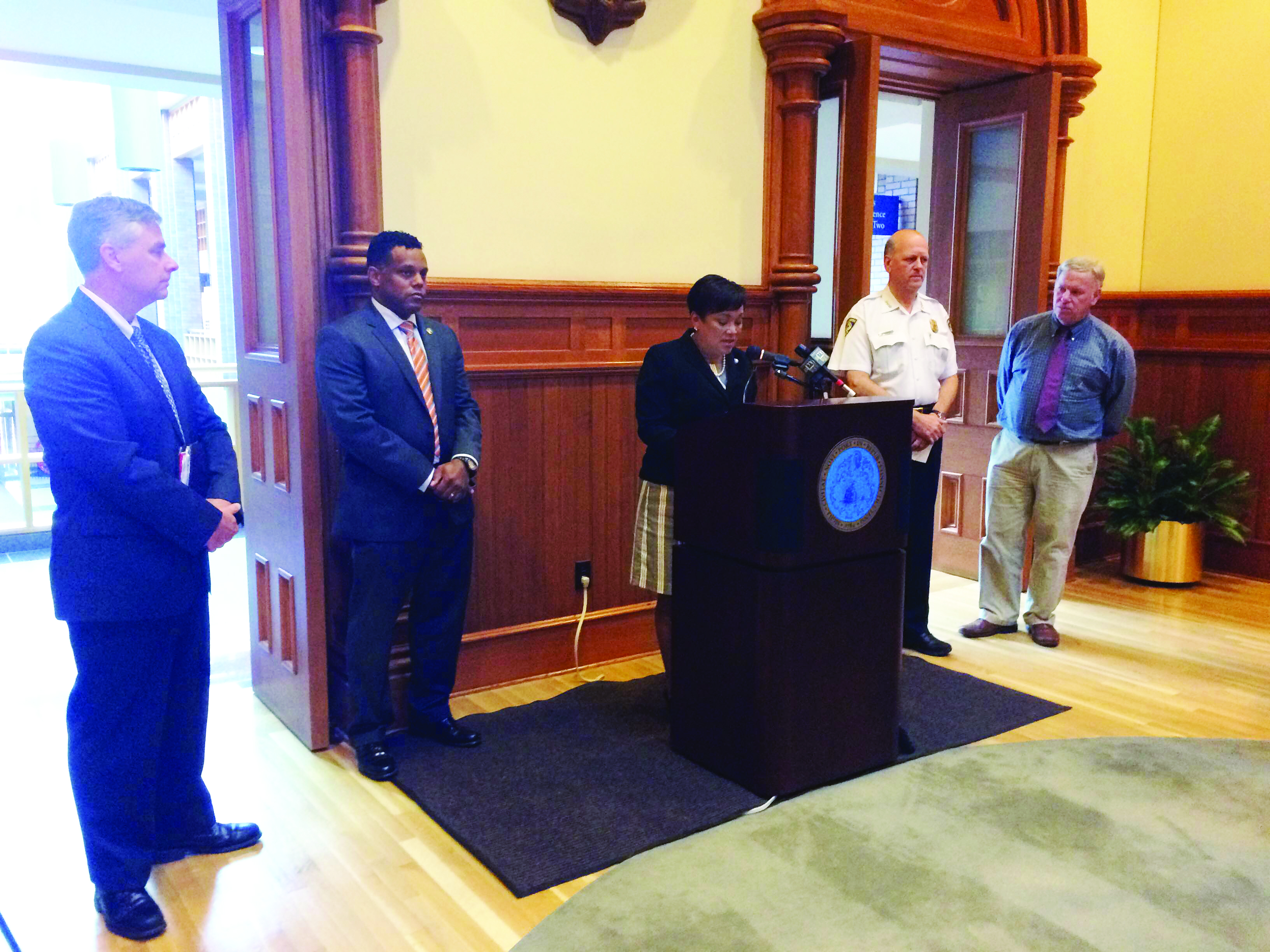
New Haven ran a budget surplus for the second year in a row, Mayor Toni Harp announced at a press conference in City Hall Tuesday.
The city finished fiscal year 2015, which ended on June 30, with a surplus of roughly $1.7 million, down from last year’s surplus of $4.7 million but still considerable, given the deficits the city ran in 2012 and 2013. Harp said that as a result of the surplus, the city was able to pour the entire $1.7 million into the Rainy Day Fund — whose value only became positive last year. High revenues from building permits and reduction in overtime expenditures were among the chief factors in generating the surplus.
“These positive operating results for fiscal year 2015 send a strong, consistent and positive message to residents, property and business owners that my administration is operating a fiscally conservative enterprise,” Harp said.
Harp said sound finances are the “bedrock” of all city projects. This year’s results will send a positive message to credit-rating agencies and investors, she said.
Harp identified three main reasons for the surplus: continued budget discipline, increased revenue from building-permit fees and reducing overtime expenditures by hiring and training more recruits in the police and fire departments.
City Budget Director Joe Clerkin said the city had planned for receipts of roughly $10 million from building permits. But by the fiscal year’s end, those receipts totaled $17 million, the bulk of which has come from the construction of the University’s two new residential colleges on Prospect Street.
Additionally, overtime expenditures have come down considerably over the last year. Last fall, the city spent roughly $300,000 each week on overtime pay for police officers and firefighters. That figure has now settled at around $100,000, City Controller Daryl Jones said, largely due to new hires.
The city will continue to employ overtime control measures to balance the budget, Jones said. He added that the city also hopes additional training for firefighters and municipal staff will help cut costs by improving workers’ efficiency in the coming months.
“Overtime has been putting a lot of pressure on the budget for the last four or five years,” Jones said. “We’ve made a lot of headway.”
Jones said the city holds bimonthly meetings to identify possible savings in overtime expenditures, adding that while those meetings are “never easy,” they are an important part of ensuring the city stays within its budget.
New Haven’s budget surplus will also positively impact the city’s credit rating. When the city last ran a deficit, in FY13, creditors downgraded the city’s rating several times, Jones said. Positive budget surpluses beginning in FY14 have allowed the city to steadily improve its credit rating over the last 15 months, he added. Higher credit ratings will allow City Hall to continue cutting costs from past years by borrowing at lower interest rates, according to Jones.
The surplus means that the Rainy Day Fund — an emergency financial cushion intended for use in times of unexpected revenue shortfall — now totals $1.7 million. Jones said municipalities aim for a rainy day fund of around 5 percent of the budget. For New Haven to reach that target, its rainy day fund would have to total roughly $25 million.
Jones said achieving the surplus was only possible by working closely with various branches of government and city departments, especially the Board of Alders and Board of Education.
Harp said the city will seek to maintain a budget surplus for the third year running in FY16, adding that doing so will require the city to seek state funding so as to reduce the need to raise taxes on residents. Clerkin noted that revenues from building permits are currently running higher than they were at this time last year, a trend that may point to a bright year ahead.
New Haven currently has an A- credit rating from ratings agencies Fitch Ratings and Standard & Poor’s, an improvement from last year’s BBB+ rating.







